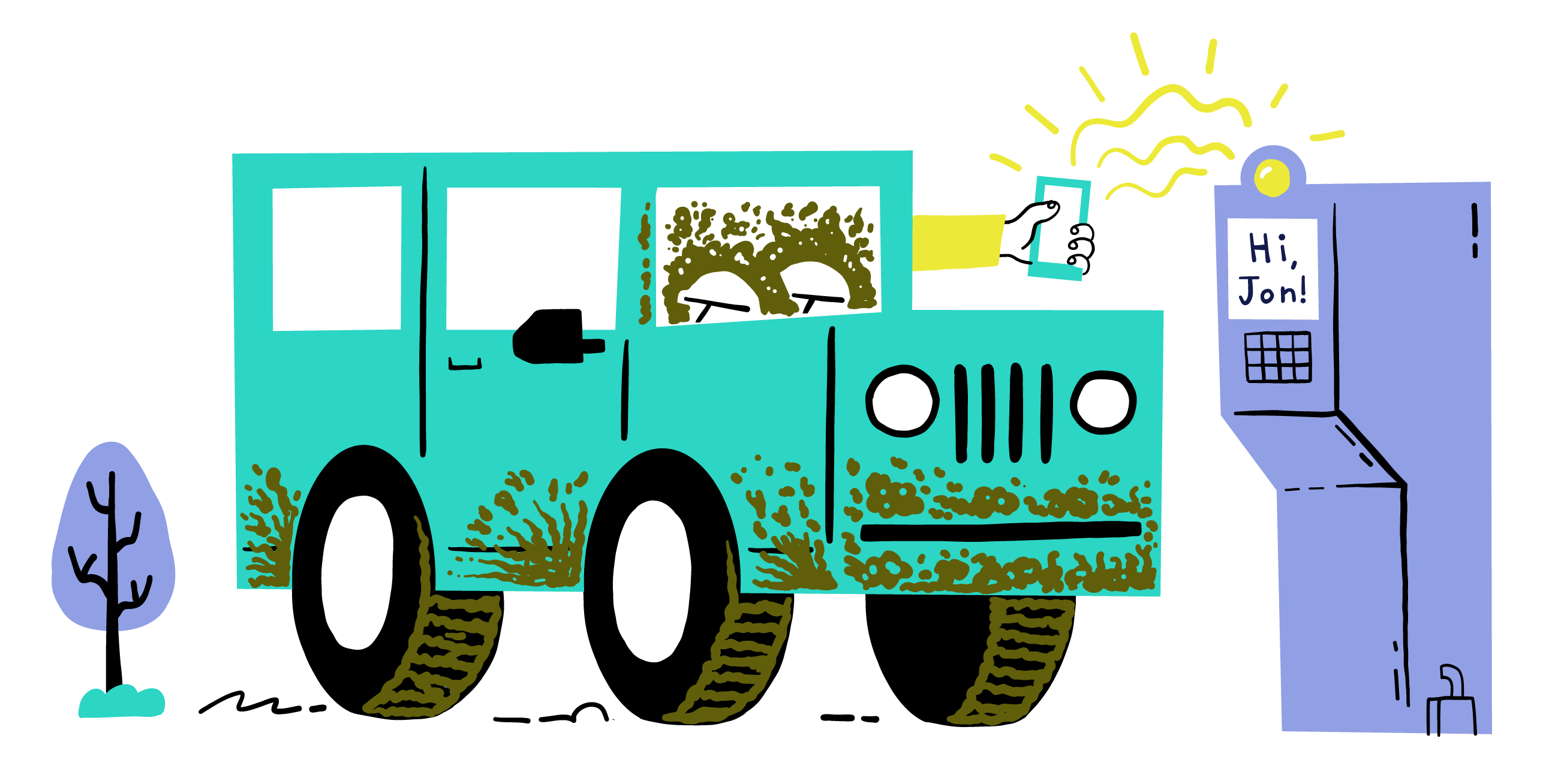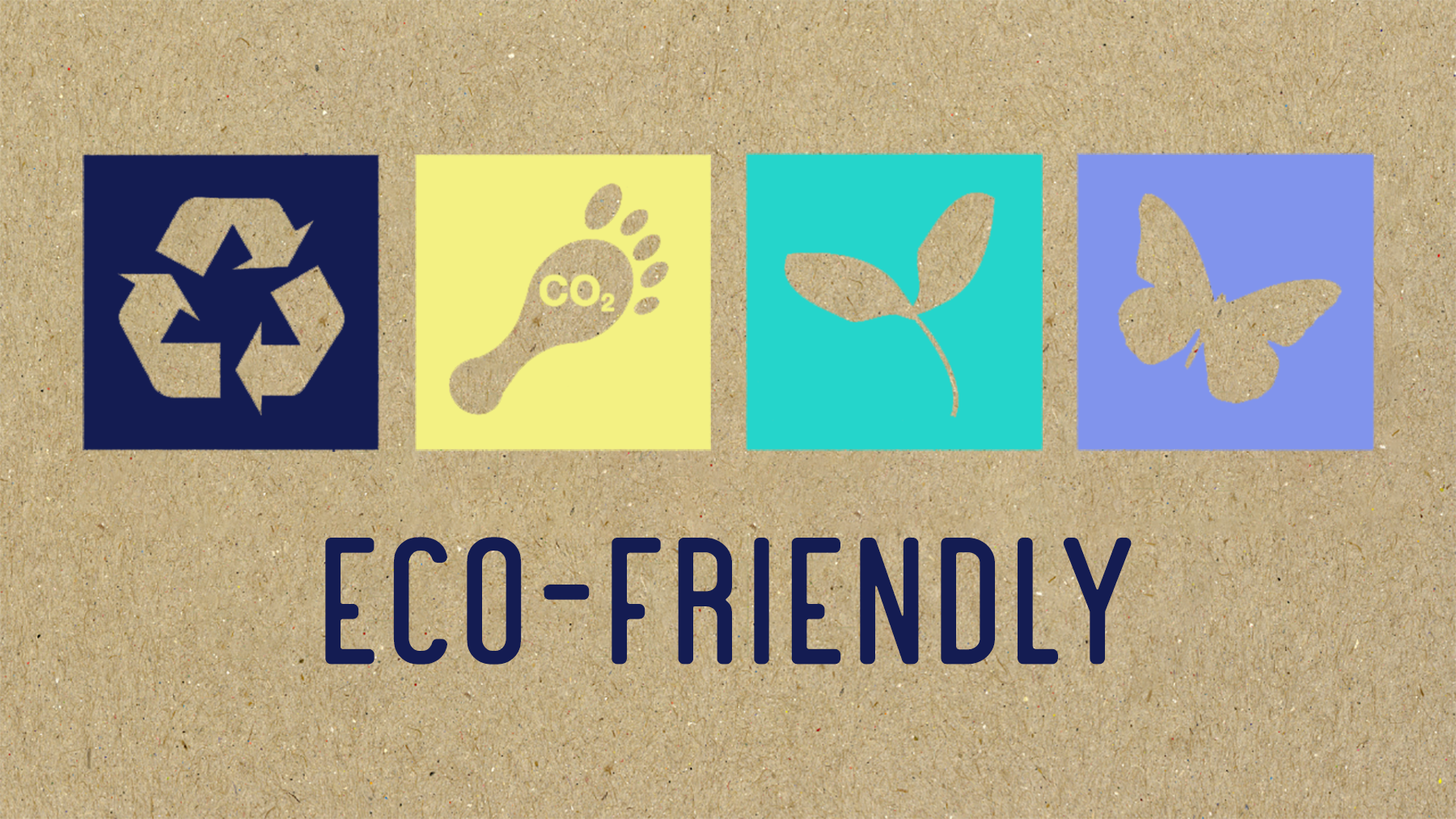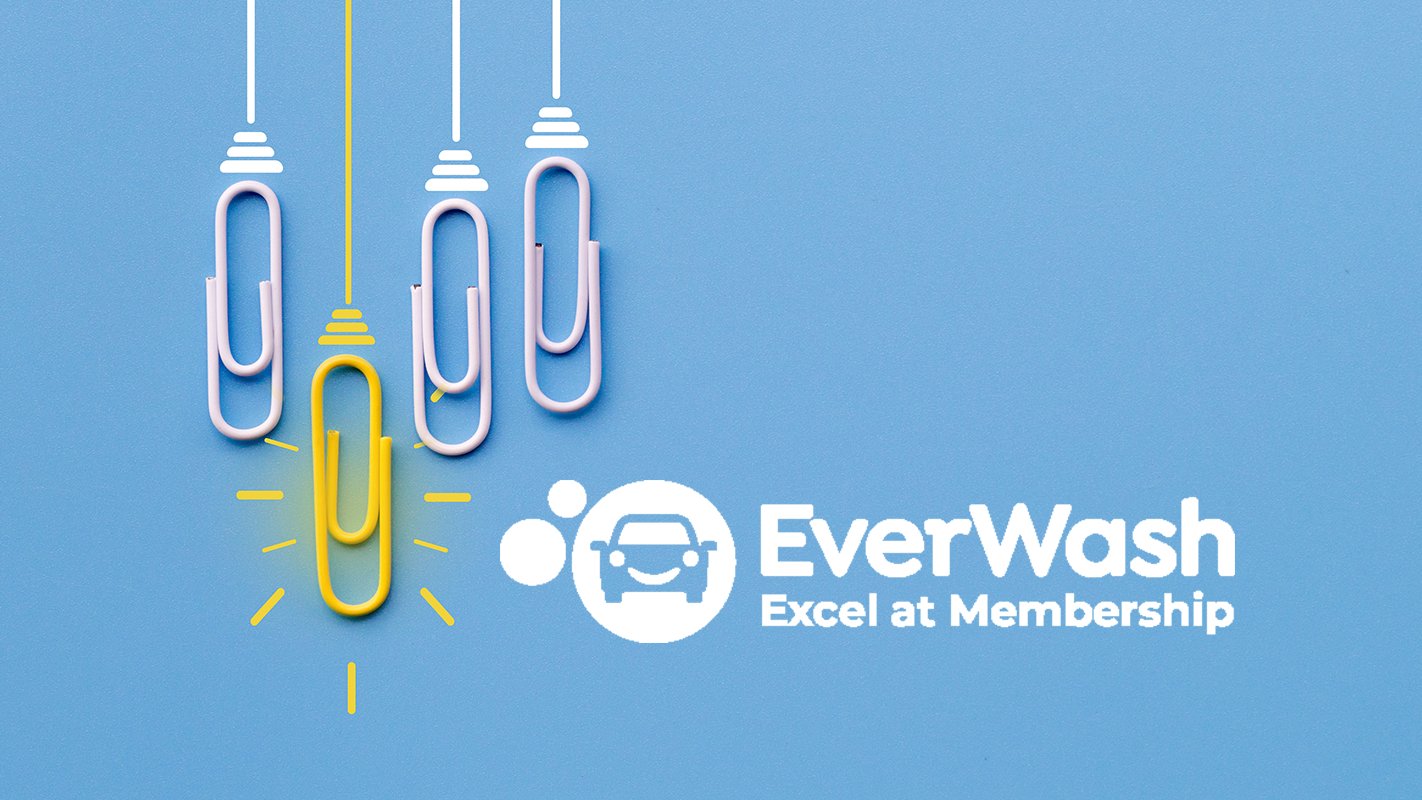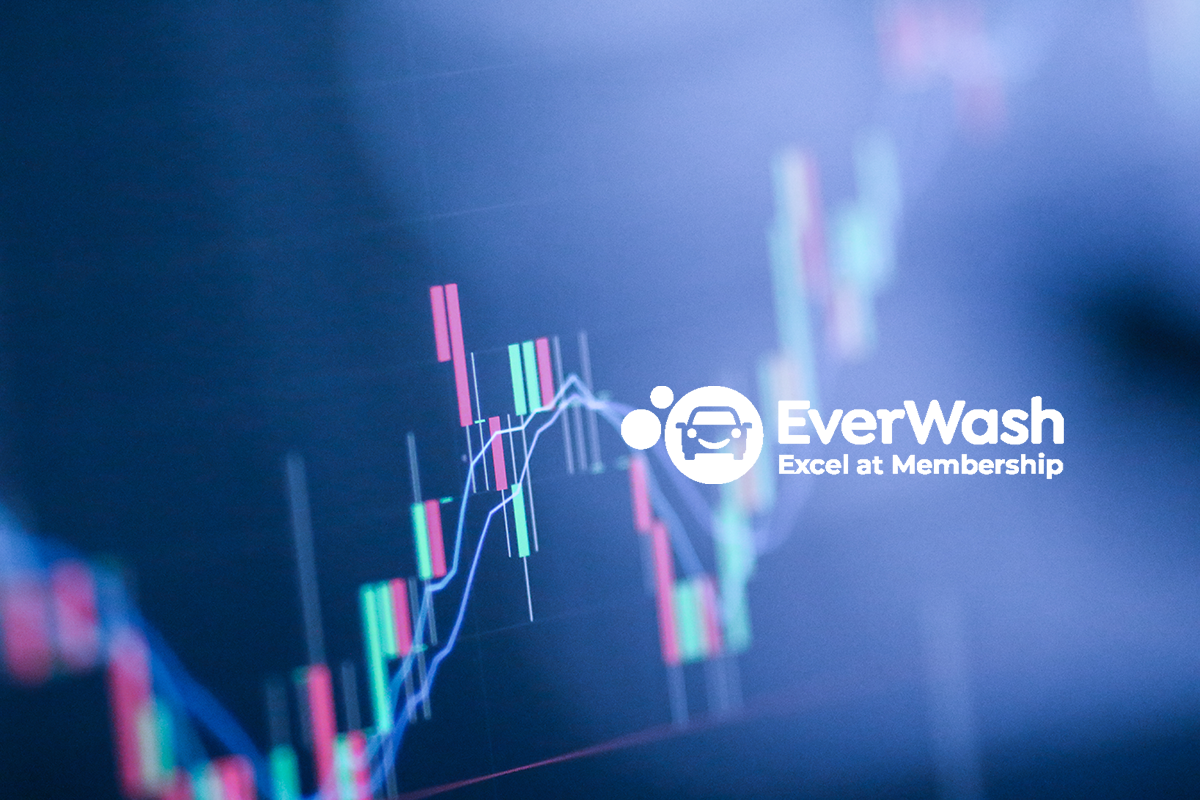Car washes have existed for decades, but the systems, technologies, and products that drive them have come a long way since their inception. While optimizing your operation is essential to growing as a business, how your product and service enhancements are marketed and presented to fulfill customers' desires allows you to maximize your profits fully.
So What Do Customers Care About in 2023?
We now live in an age of conscious consumerism, with an increasing number of people paying more attention to their impact on the environment and the value of preserving natural resources like water. As these trends in sustainable business practices grow in popularity and importance, so has the opportunity for wash owners to implement eco-friendly practices to do more with less, like reducing the amount of water and energy used in an average wash.
While these eco-friendly improvements help you streamline your costs and preserve resources, they are just as valuable marketing tools with benefits and features that can attract new customers looking for sustainable businesses that align with their values and beliefs.
So with all that in mind, let’s dive into these specific eco-friendly enhancements and how to properly market their value to help you run the most profitable business and capture the largest audience possible.
How to Care for the Environment While Running a Profitable Business
As a business owner, finding ways to increase your company’s bottom line is essential. And so is upholding environmental responsibilities. The following wash system techniques give you the multifaceted opportunity of doing both at once:
Using Water Reclamation Systems
Water reclaiming systems work by capturing and treating used water during the car washing process. Instead of allowing the wastewater to flow into the sewer system or storm drains, it is filtered to be reused by removing contaminants and impurities. Once purified, the water is then cycled back into the car wash process, allowing it to be used repeatedly for washing multiple vehicles.
The benefits of a water reclamation system are twofold. Firstly, reducing water consumption leads to substantial cost savings on water bills. Since water prices continue to rise in many regions, like California, this becomes a critical factor in streamlining operating expenses and enhancing profitability.
Secondly, you contribute significantly to water conservation efforts. For example, every wash cycle would rely solely on freshwater without a reclaim system, leading to substantially higher water consumption per vehicle.
By reusing wash water, you align with your environmental responsibilities as a business owner and enhance your business's reputation as a responsible and sustainable entity within the local community.
Customers appreciate and are increasingly drawn to businesses that actively take steps to minimize their environmental impact. In fact, 8 out of 10 consumers feel disconnected from brands that don’t care about the environment or don’t practice eco-friendly methods. But close to 4 out of 10 consumers will pay higher for eco-friendly products and services.

Implementing Energy-Efficient Practices
An eco-friendly car wash achieves the dual purpose of increased sustainability and profitability. By using energy-efficient practices, like low-energy LED lighting and high-efficiency motors, your car wash saves on electricity and reduces the use of fossil fuels. LED lighting is especially great because it uses less energy and lasts longer.
At the same time, an eco-friendly car wash produces fewer emissions, which helps fight climate change and air pollution. This means your car wash is doing its part to protect the planet and support a greener future for everyone. So, it's a win-win situation – you're being environmentally responsible while saving money and running a more profitable business.
Here are some must-learn energy-efficient practices for your cash wash:
- Use LED lighting to save energy and maintenance costs.
- Upgrade to high-efficiency motors for machinery.
- Use solar panels for renewable energy.
- Implement smart scheduling and automation to reduce energy waste.
- Install Variable Frequency Drives (VFDs) for energy-efficient control.
- Improve building insulation and design for energy conservation.
These small changes in different parts of your operations can make a mighty difference in your environmental impact. And you don’t have to do a major overhaul immediately. You can take it one process at a time. But by all means, start.

Choose Friendly Cleaning Products
Many professional car washes have switched to eco-friendly, biodegradable, and non-toxic cleaning products. And for good reason. These gentler alternatives minimize the release of harmful chemicals into the environment, safeguarding local ecosystems and waterways.
8 million vehicles are washed daily in car washes in the United States alone. Stacked one on top of another, eight million cars would surpass the International Space Station's height by over 36,000 miles. Think about all that runoff from the washing process polluting water bodies.
Choosing eco-friendly cleaning products at your car wash ensures that the runoff from your washing process doesn't contribute to water pollution or harm aquatic life. It’s a responsible approach to preserving the environment.
What constitutes an environmentally friendly cleaning product? It’s a cleaning product that is:
- Biodegradable
- Non-toxic
- Low in VOCs
- Uses sustainable ingredients (like plant-based ingredients—citrus extracts, vinegar, or essential oils)
- Has minimal packaging
- Is safe for waterways
- Not tested on animals
On a more nuanced level, using eco-friendly cleaning products in your car wash will attract environmentally conscious customers seeking sustainable alternatives. This can lead to an expanded customer base and increased revenue as more people support businesses prioritizing environmental stewardship and the use of eco-friendly products.

Meeting Regulatory Requirements
Your car wash is bustling and busy with various moving parts, machinery, and cleaning products. Without strict enforcement of safety standards, it’s basically a magnet for accidents and potential hazards. That’s why the Environmental Protection Agency (EPA) and the Occupational Safety and Health Administration (OSHA) have car wash regulations in place to eliminate hazards.
car wash regulations are comprehensive guidelines and requirements set by regulatory authorities to safeguard the environment and promote the safety and well-being of workers. These guidelines include water usage, product handling and disposal, energy consumption, waste management, and air quality control.
car wash regulations have two main goals: conserving water and keeping workers safe. car washes use a lot of water, so the rules encourage using water-saving technologies like high-pressure nozzles and water recycling systems to save water while still getting cars clean.
OSHA also sets rules for handling cleaning chemicals and using machinery to reduce accidents and protect workers from harmful substances. This creates a safe and healthy work environment, which makes employees happy and more productive.
Following these regulations can bring extra benefits too. In some areas, there are incentives for businesses that embrace eco-friendly practices, like getting financial grants or tax breaks. But not following the rules can lead to serious consequences.
For instance, in the Municipal of Bothell, Washington, car wash facilities must use biodegradable and environmentally friendly cleaning products. A violation of this rule results in fines or even stop work orders.
A commitment to safety is the right thing to do and a fundamental aspect of running a successful and responsible car wash shop.

Proactively Push Your Membership Programs
Car wash memberships give your customers special deals or the option to wash their cars often during a set time. When people wash their cars regularly, it stops dirt and harmful stuff from building up, which keeps their cars looking clean. This means you won't need to use strong chemicals or scrub hard later, which is bad for their vehicles and the environment.
Your car wash memberships encourage people to wash their cars more often, but these washes use less water and cleaning products compared to doing a big wash once in a while.
This is good for the environment because regular home car washing uses a lot of water. A single car wash typically consumes approximately 38 gallons of water. And all that dirty water flows into drains and rivers, causing pollution. We can save water and keep our environment cleaner by washing cars more lightly and often at the car wash.

The Journey Towards An Eco-Friendly Car Washes Is a Win-Win
Embracing eco-friendly practices benefits both your car wash business and the environment. For example, using energy-efficient equipment and lighting can reduce electricity usage and lower utility costs. These financial improvements directly contribute to making your business more profitable and successful in the long run.
Moreover, going eco-friendly makes you more marketable and helps you build stronger customer loyalty. Today's customers value businesses that care about the environment. When you choose eco-friendly practices, your car wash stands out as a responsible and socially conscious enterprise.
This enhances your reputation, builds customer trust, and encourages long-term loyalty. People are more likely to support a car wash that shares their values, ensuring you have a steady flow of customers who keep coming back.
We know this advantage at Everwash. That’s why we came up with an end-to-end solution for being sustainable and profitable in the car wash industry. The idea is simple: to give you the one platform to grow your business.
We can talk all we want, but you’d be better off checking it out for yourself. It’s the best way to know if this solution is what you need to grow your car wash business. You can take a peek here or sign up and try the platform for yourself.









